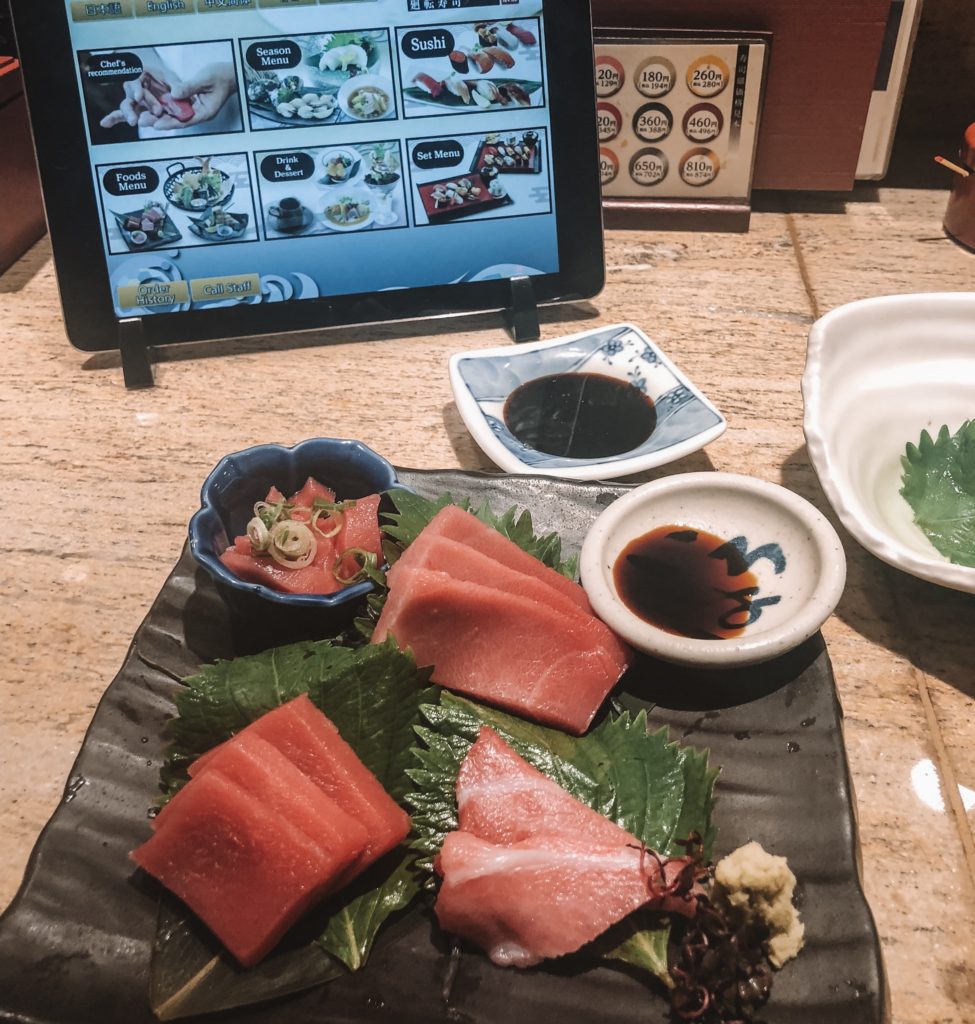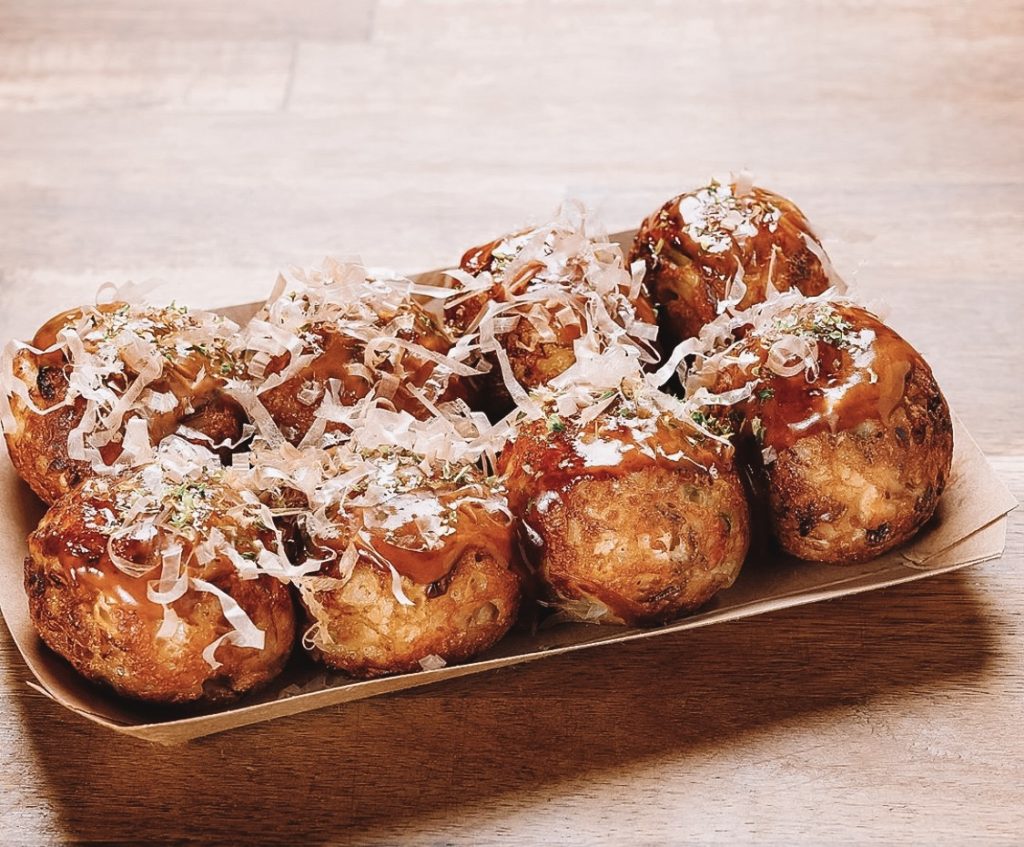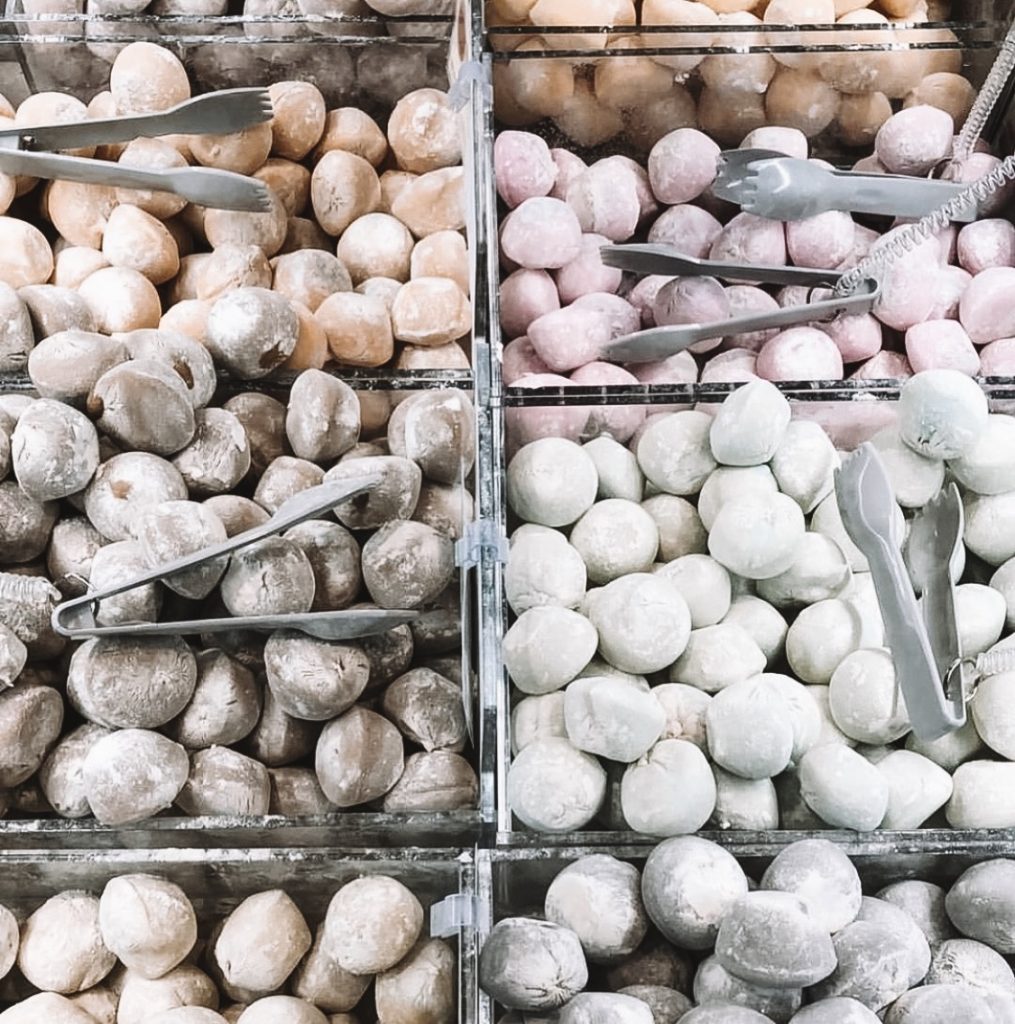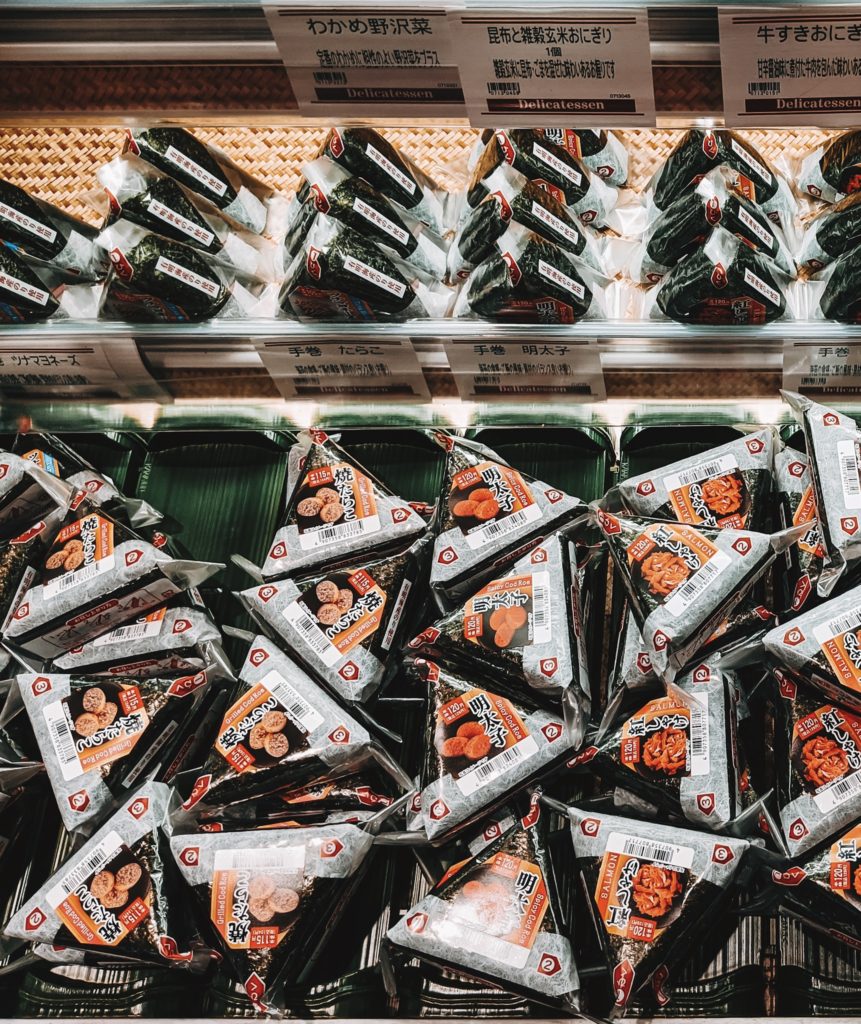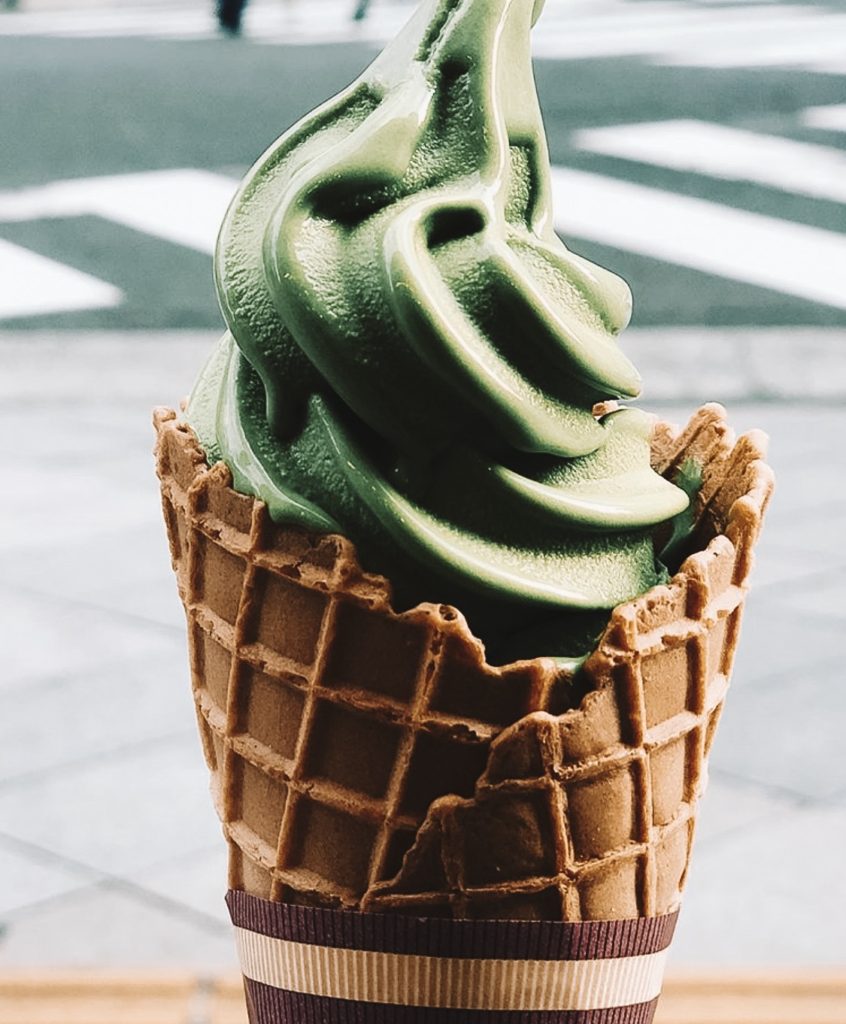Top 17 Foods You Can’t Miss in Japan
August 12, 2020

I could easily adopt an all Japanese food diet for the rest of my life. Sushi, great. Rice, great. Ramen, fantastic. And teriyaki sauce… it’s a hard list to stop.
During my month in Japan, I decided to fully embrace Japanese cuisine. My personal No-Diet Diet began. Bring on the carbs and soy sauce! Save restrictions for home. While exploring the country with the most 3 Michelin star restaurants on the globe — that’s right, Japan passed up France for the record in 2011 — you have to eat, and eat everything.
So why is Japanese food so good? Because they’re experts in using fresh ingredients. There are two key Japanese words in understanding the importance of freshness: shun and hashiri. Shun translates to “peak season” and refers to the time frame in which a particular fruit, vegetable, fish or meat is at its best. Hashiri means “first of the season.”
One interesting thing I learned about the history of Japanese cuisine is that, although we see Japan as a fish and meat eating nation, up until the late 1900s Japan was primarily 90% vegetarian. Fish was only eaten during special occasions. Some believe that this is due to the Buddhist and Shintoism teachings, which promoted eating plant-based. The first known ban of eating meat was announced in 675 CE and meant no beef, monkey, chicken, or dog were to be eaten from late spring -April until early autumn- September.
Well, things have changed drastically in Japan over the years and now you can walk down a tiny street in Kyoto and come across all kinds of foods from the freshest sushi to Japanese A5 Wagyu.
Here is a list of my favorite 17 foods you cannot miss in Japan!
- Sushi
Obviously. Fish and vegetables rolled up into delicate bites. The flavors and possibilities are endless.
Some of my favorite spots — Chojiro in Kyoto, Izama in Kyoto, Katsu Midori Rotator Sushi in Tokyo. You must try sushi at a rotating sushi bar while you are in Japan. Everything is fresh and delicious!
- Yakitori
Chicken skewers grilled over charcoal. You can get yakitori in restaurants, but it’s also a popular street food. Meat on a stick, come on. Variations range from chicken thigh to chicken liver to breast, gizzard… basically any part of the chicken imaginable.
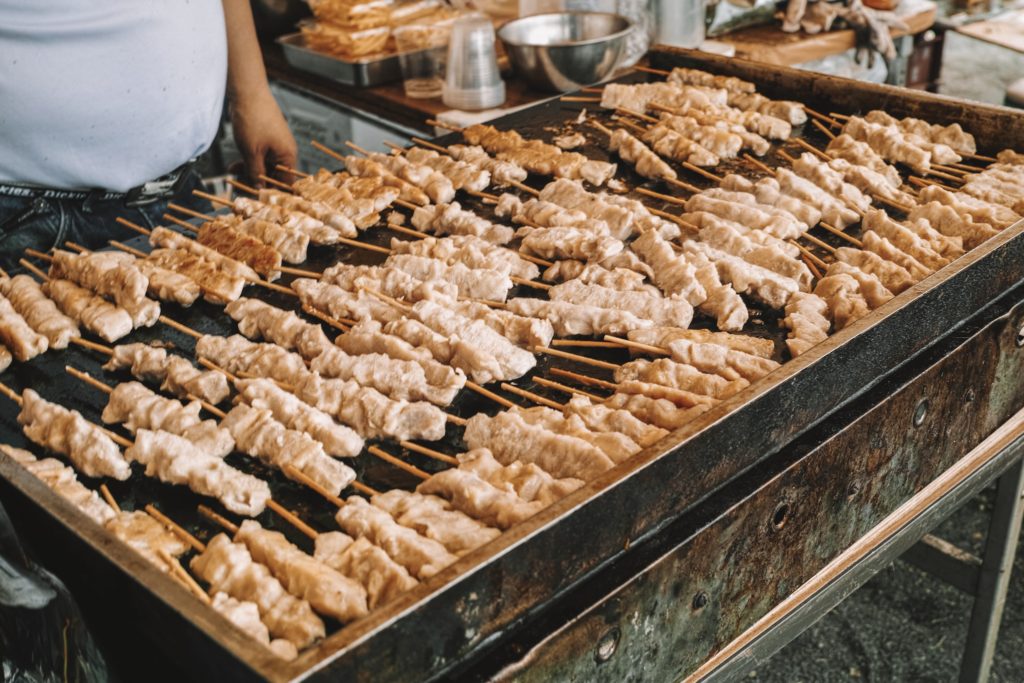
- Okonomiyaki
A savory pancake, panfried and filled with all sorts of toppings. Think Japanese Pizza. “Okonomi” means, “what you like”, so you chose your fillings. There’s octopus, green onions, pork, kimchi, squid… basically, what you like.
My favorite spot — Donburi
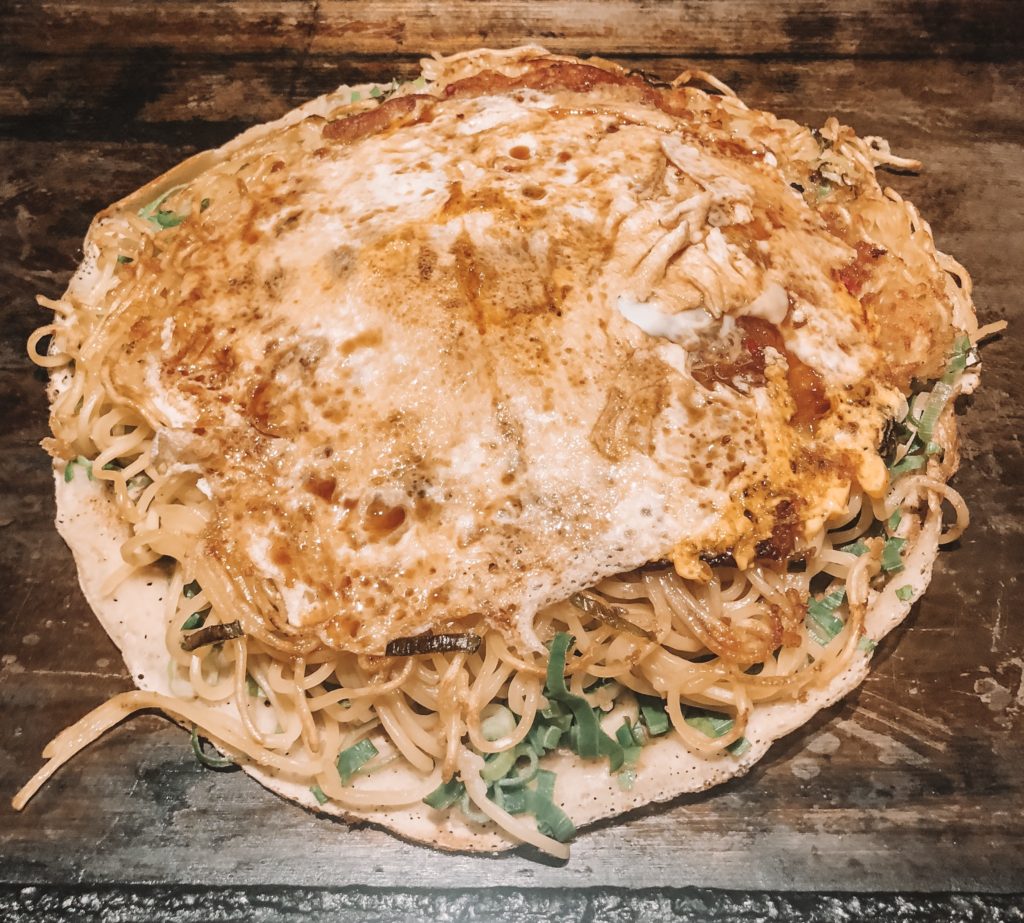
- Ramen
A classic. The dish is made with Chinese wheat noodles and served in broth. Shoyu and Shio are the two most popular options. Shoyu is made with soy sauce and chicken broth, while shio is made with salt and chicken broth. Fillings vary depending on location, but there are a lot of options here as well — pork, chicken, nori, bamboo shoots, bean sprout and on and on.
My favorite spots — Ichiran (there are many locations throughout Japan), Michelin-Starred Tsuta in Tokyo, and Ginza ABC in Tokyo
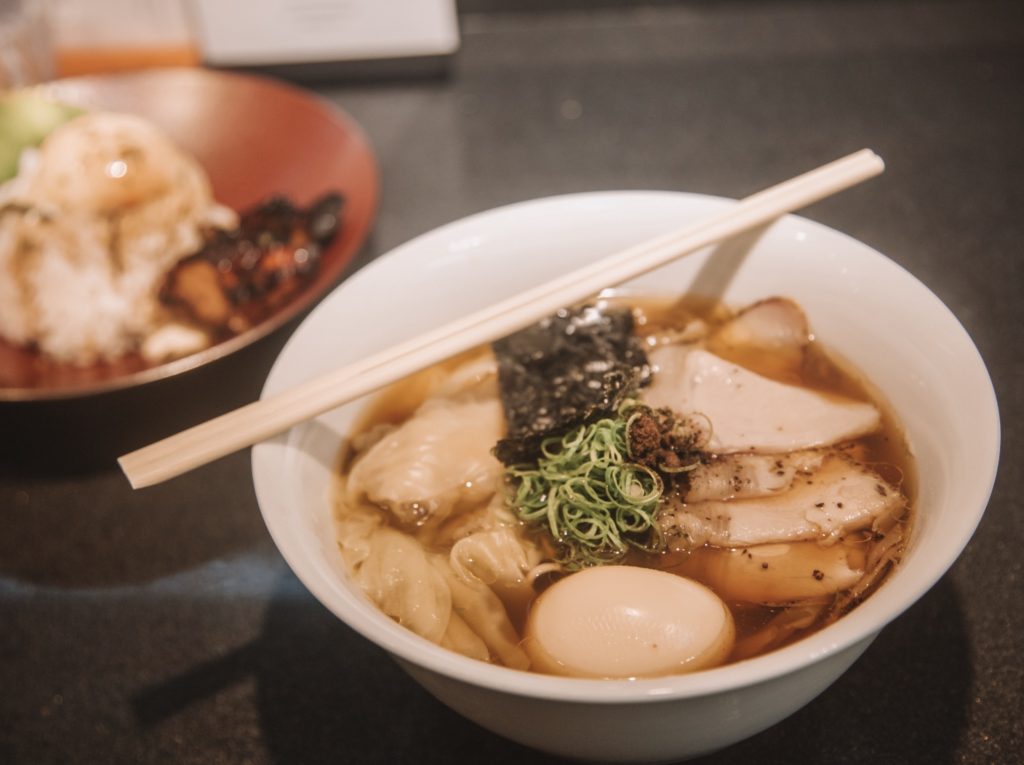
- Kare Raisu
Japanese curry rice. Sweeter and less spicy than Indian curries, kare raisu is cooked with meat, potatoes, onions and carrots. Try Katsu Kare as well, a variation with tonkatsu (deep fried pork) — savory, sweet, and crunchy. It’s a must have.
My favorite spot — Coco Ichibanya (many locations)
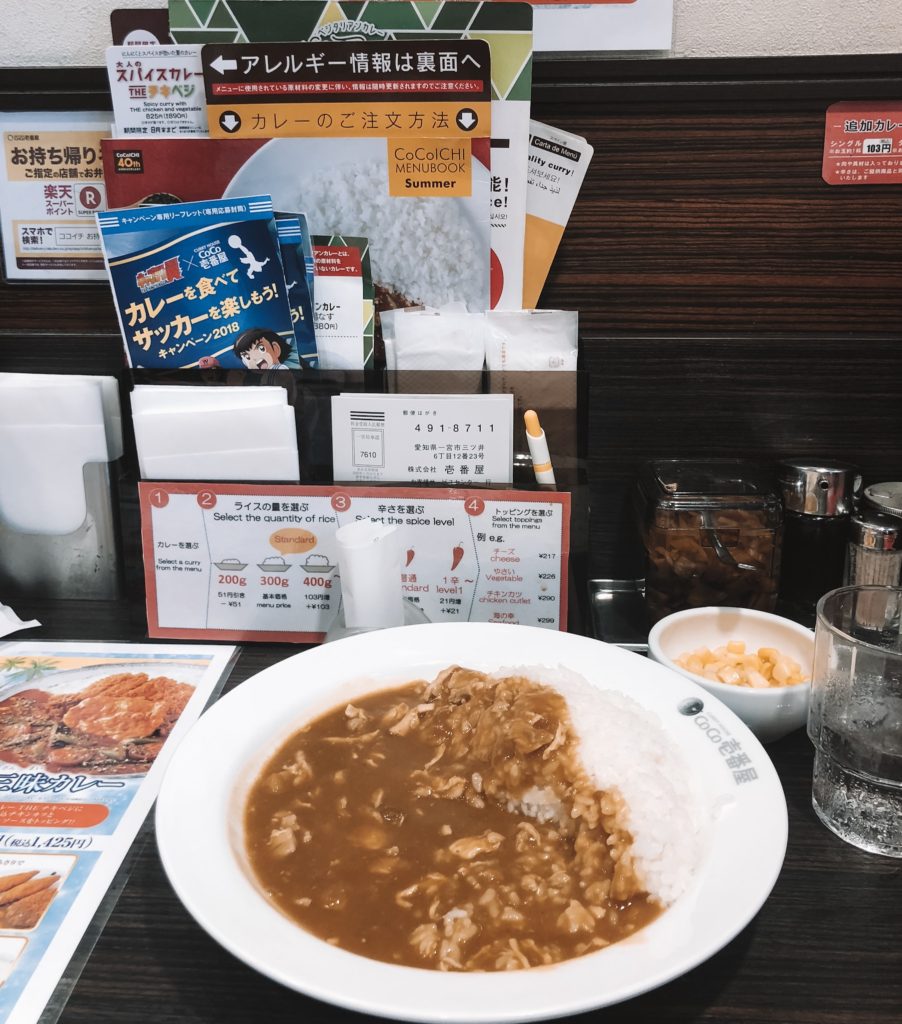
- Takoyaki
A tasty street food, takoyaki are little ball-shaped snacks. Made from a wheat-flour batter and filled with octopus, takoyaki is pan-fried in specialty trays to create their famous shape. Once cooked, they are topped with bonito flakes, seaweed, mayonnaise and tare (a thick, salty sauce). They’re crisp, delicious and addictive.
- Mochi
Mochi has a spiritual history of being used as offerings to the gods and is believed to have symbolized either the rice harvest or the spirits of the dead. There’s mochi ice cream, but there’s also mochi. On its own, mochi is a sweet rice cake, which then can be hollowed and filled with ice cream or red bean paste. Either way, biting through mochi brings a bouncy, delicate sensation.
- Shabu Shabu
Shabu-shabu is prepared at the table, by you. Diners are given thinly slice meat, vegetables and a boiling pot of broth. Drop in the ingredients, watch them cook, then dip into ponzu or sesame sauce. The name shabu-shabu comes from the swish-swish sound the food makes while cooking!
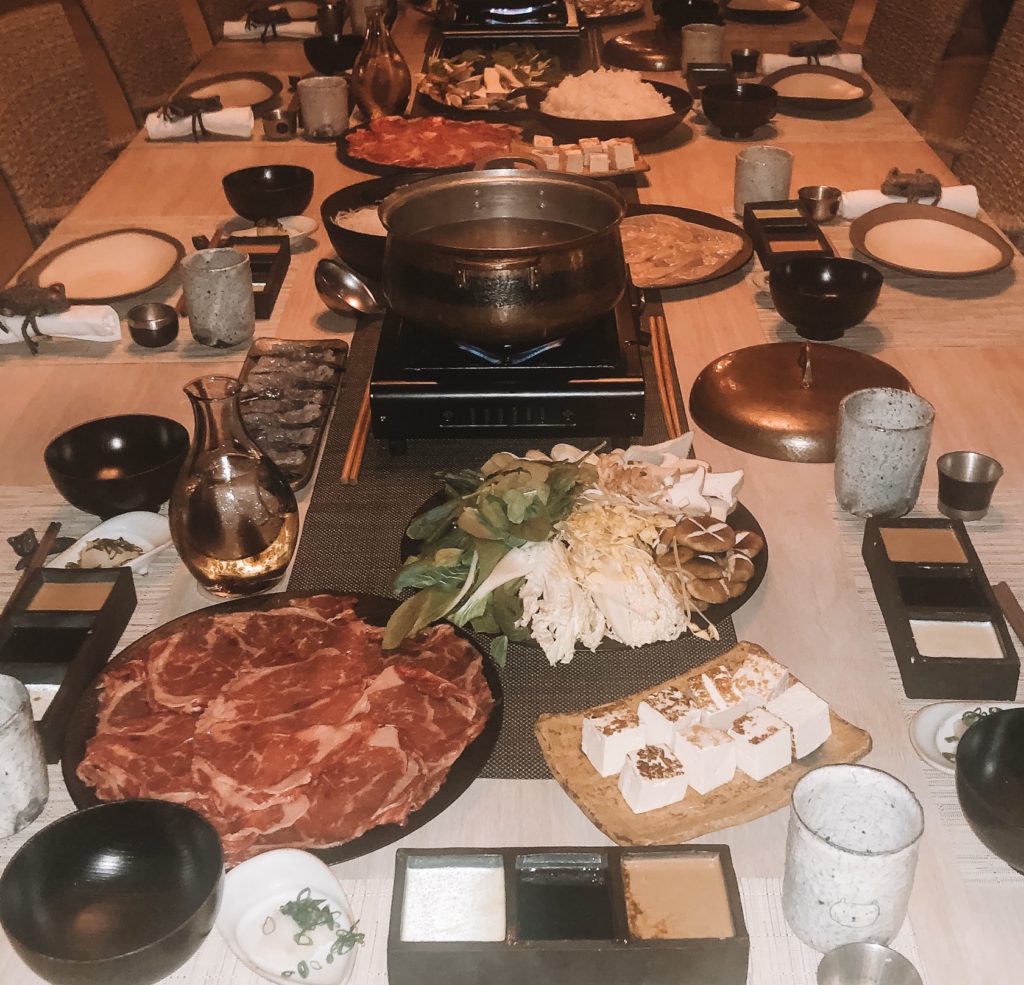
- Omurice
An omelette with fried rice, topped with ketchup — perfect for a Western fix on the other side of the world.
Must try Kichi Kichi in Kyoto. He is famous worldwide for his omurice show!
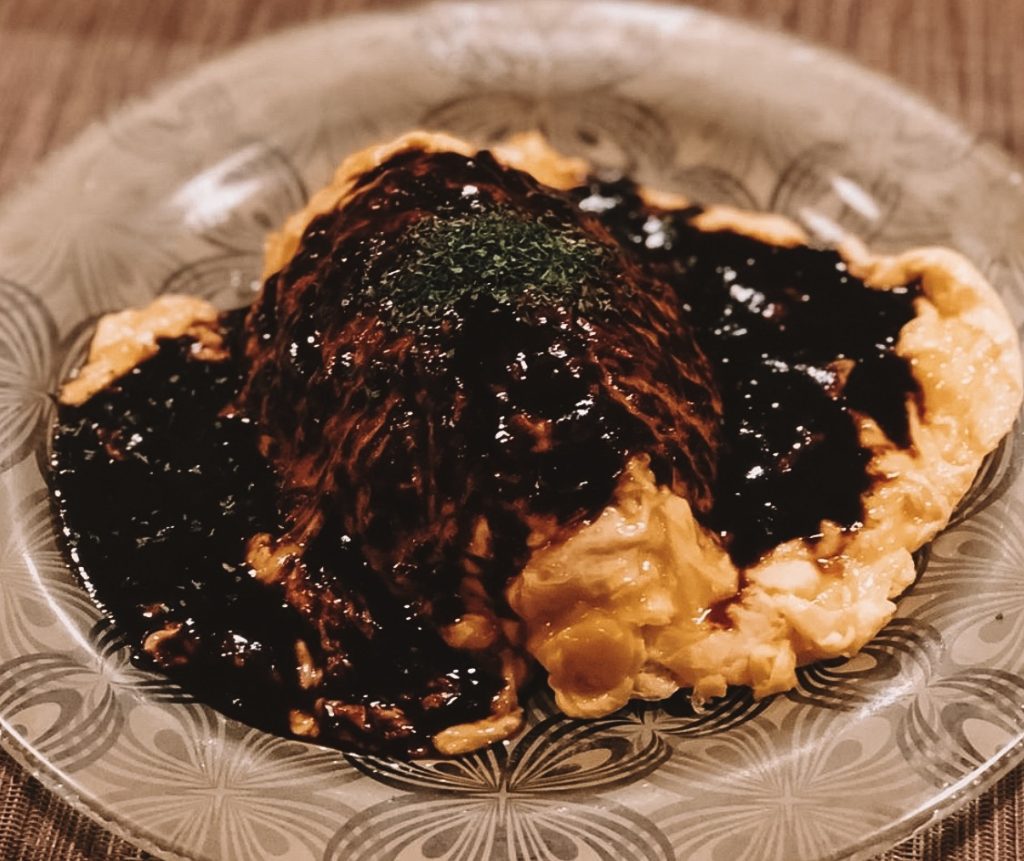
- Udon Noodles
A staple of Japanese cuisine, udon are thick wheat flour noodles. They can be found in soups and curries, topped with an egg, and served hot or cold. You can’t go wrong with a tasty noodle!
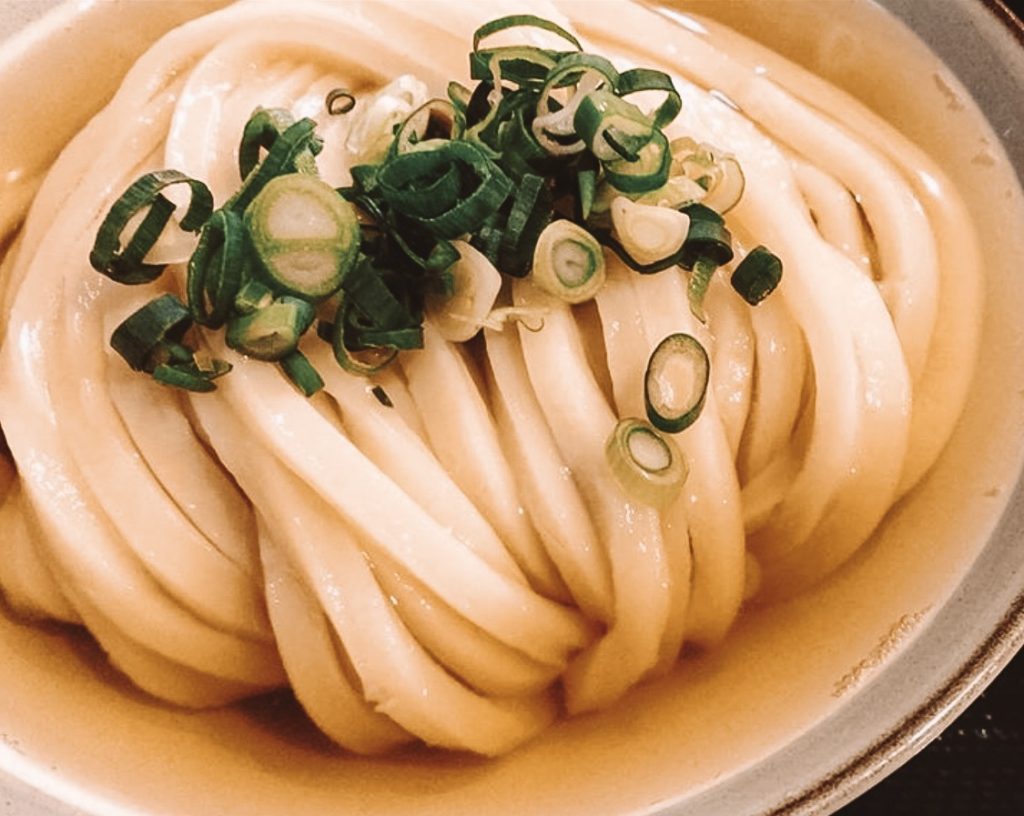
- Onigiri
A classic comfort food, onigiri is steamed rice molded into triangles, spheres or cylinders, then wrapped in nori (seaweed). Sound like sushi? Kind of… but onigiri is made with plain rice, and sushi rice is seasoned. They’re also shaped differently and easier to eat on the go. Onigiri can be filled with pretty much anything, but sha-ke (salted salmon), tuna mayo and tarok (salted cod roe) are some popular choices.
- Gyoza
Dumplings pan fried and stuffed with yummy fillings — some garlic, some cabbage, some pork or chicken. The combination of pan-frying and steaming makes gyoza doughy soft but also crunchy. Gyoza are warm little pockets of home.
My favorite spot — Champagne & Gyoza Bar, Tokyo

- Japanese A5 Wagyu Beef
The coveted and highest rated beef. Traditional methods are used by “beef masters” to raise Kuroge cattle into sweet, velvety meat with distinct marbles, best served very rare. I mean it’s shipped all over the world, so while in Japan…
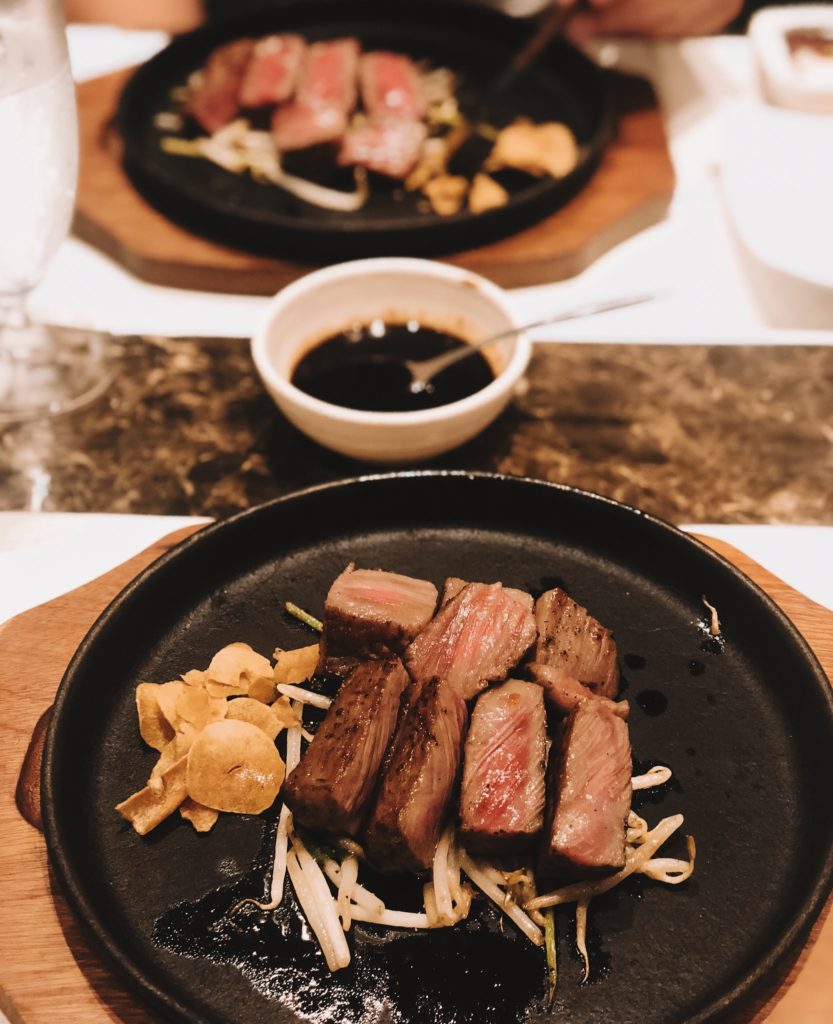
My favorite spot — President Chibo in Tokyo (So good, we went twice!) Also, Han no Daidokoro Kadochika is really good with the infamous “Beef Boss” cooking up the best meats close to Shibuya crossing.
- Tamagoyaki
It’s a square omelette! Seriously. The dish is prepared in a special pan by rolling layers of egg into a rectangle. The result is a fluffy bar of gold! And tamagoyaki can be filled with — you guessed it, just about anything.
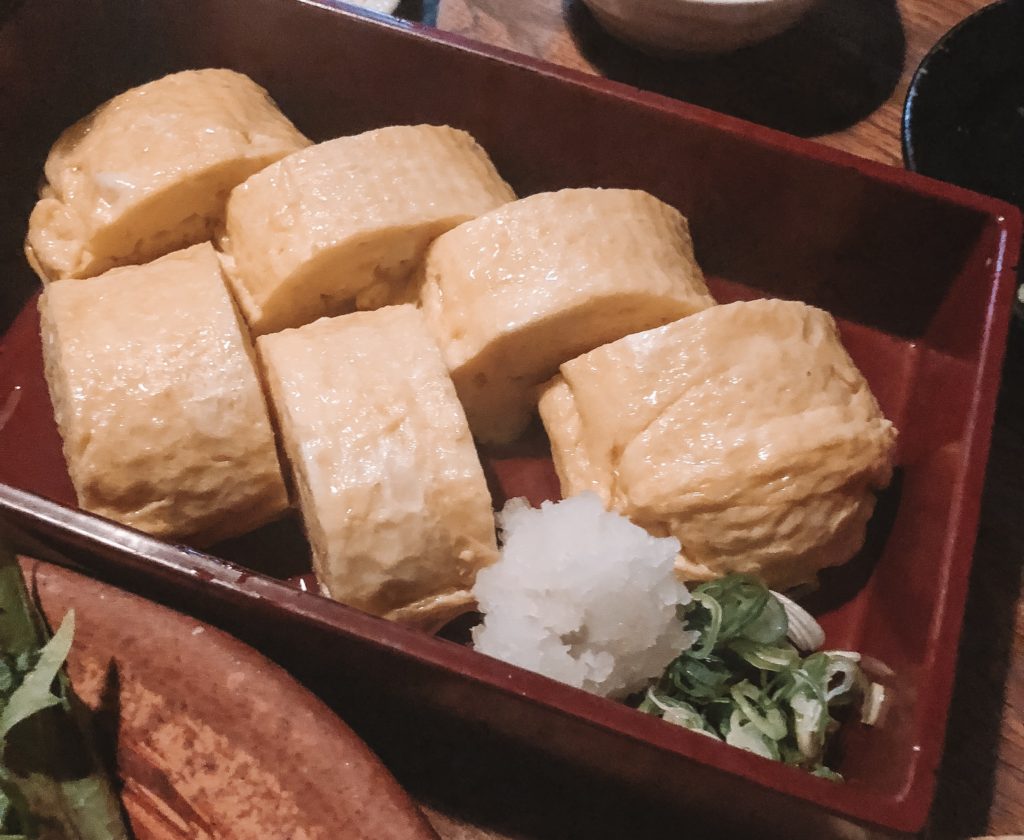
- Miso Soup
You know it well. The classic Japanese starter. Broth, miso paste, green onions. There can be tofu or meat. It’s simple, cozy and soothing. A must-have while visiting Japan.

- Soba Noodles
Another noodle! This one is made from buckwheat giving it a darker color and a heartier taste. Served hot in broth or cold with a dipping sauce, soba is another way to satisfy your noodle fix.

- Matcha Tea/ Matcha Ice Cream
A full-bodied green tea with a slew of health benefits. It’s made from a green tea leaf powder, so it’s stronger and a little more caffeinated than usual teas. The taste is rich, sweet, and aromatic and it leaves you feeling all sorts of calm.
I thoroughly enjoyed my Japanese food exploration, and there is so much more than the food on this list. Never limit yourself. Eat your way through Japan and find yourself lost in tiny alleys with no English signs to be found. Sayōnara!
Thanks for taking your time to read this blog post!
filed under:
copyright © 2025 keir alexa all rights reserved
Home
My Story
GRATITUDE
manifest
Discipline
BE PRESENT
resources
Travel
Events
Philanthropy
Mindfulness
Hi, I'm Keir—
Thanks for visiting my corner of the web.
Monthly Intentions
energy flows where attention goes
My mission is to inspire people to live more mindfully, embrace worldly travel, and engage in meaningful service to uplift communities wherever we go.
